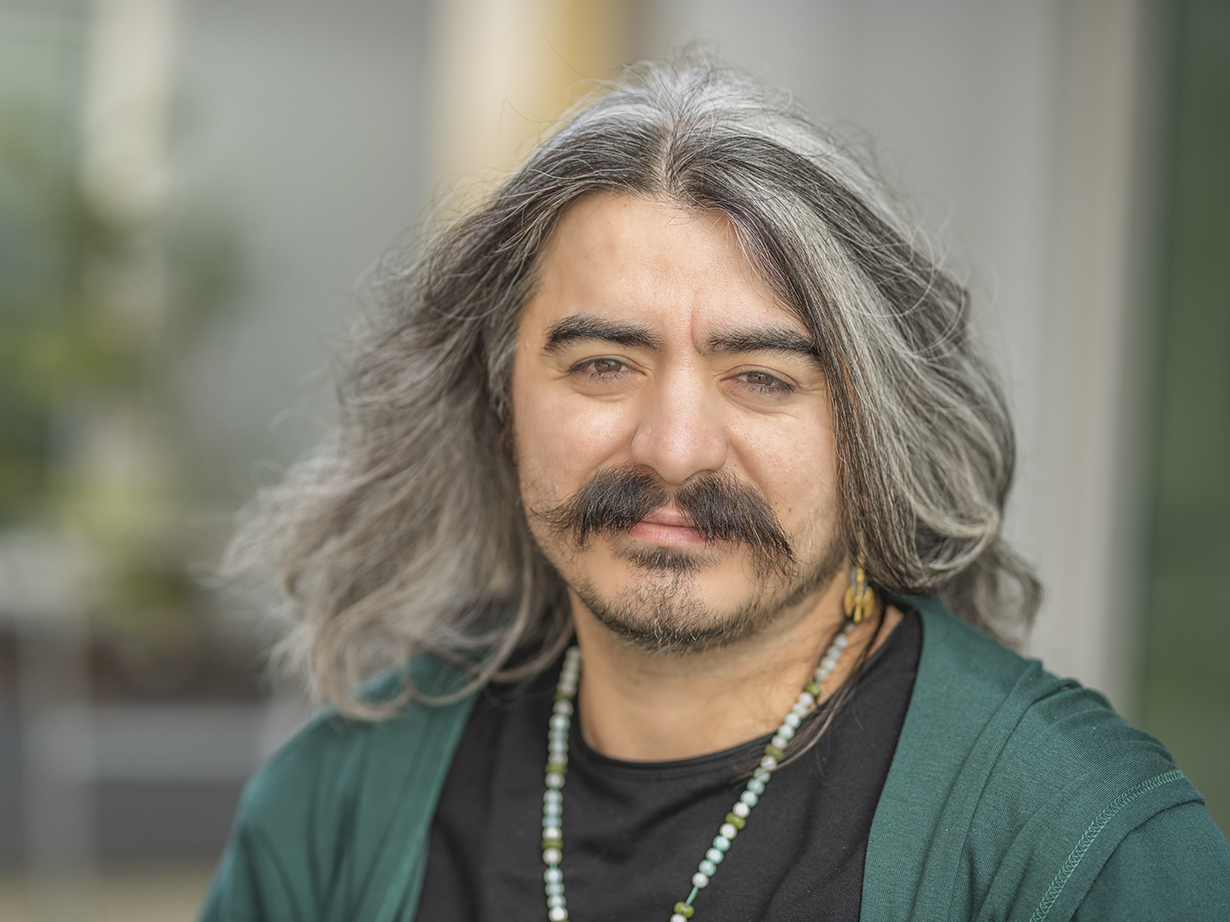Jan Porvas was only seven years old when he picked up the drum that would change his life.
Surrounded by his friends and family at home, he was captivated by the chilling vibration of a Naqara drum they were playing. His curiosity led him to take it into his hands and with the first touch, he created his own rhythm. The connection was instant; he couldn’t put it down.
“I forget a lot of moments, but that moment is very different because it was my first time,” Porvas says.
Porvas was born in 1984 in Tabriz, Iran, into a family of musicians. His grandparents, parents and siblings all share a deep musical bond. But in Iran, it’s illegal to have instruments. Following the 1979 Islamic Revolution, the government deemed music a societal ill, punishable with fines, lashes or imprisonment for “causing corruption on Earth” under Iranian law.
In Tabriz, when Porvas was a child, it seemed to him like every community had its own deep musical traditions. They would play together, teach children how to dance and sing, but they would do it hiding in each other’s homes.
Whenever a musician came to his house, Porvas was drawn to their instrument and wanted to try it out. He tried everything ranging from a saxophone to a keyboard.
When Porvas was eight or nine, his teacher, Cavit Murtezaoğlu—who happened to be his brother-in-law—boldly staged the first pop concert since the revolution. Despite the civil police tearing down posters and causing disruptions at the theater, the concert went on. As he watched the performers play their instruments, Porvas dreamt of someday sitting alongside them.
“I was very, very fortunate to have him,” Porvas says. “It’s hard to find that kind of teacher.”
Porvas became Murtezaoğlu’s apprentice. He taught Porvas Makam, a melody system typically used in Turkish classical and folk music. Murtezaoğlu was also his spiritual master and showed him how music is an expression of spirituality. After his mentor was exiled from Iran for breaking the law with his music and hosting the concert, Porvas followed him to Istanbul, Turkey.
Once he reunited with his teacher, they started working together on every aspect of music; they recorded and edited music together and Porvas learned how to play the daf and Tanbur, which are both spiritual instruments in the Middle East.
Porvas also reunited with a childhood friend Tovas, and she would become his future wife. While she was singing and writing, he was playing instruments. They both learned from Murtezaoğlu. “Suddenly, you know my heart is telling me to marry her,” Porvas says. Music was their passion, life felt better for them in Istanbul than in Tabriz. They were working together and being paid to make music, and Porvas was expressing his faith through music.
“Turkey was like a haven for us,” Porvas says. “Because nobody was asking you why you were making music. Nobody was talking about that.”
After a decade in Istanbul, Porvas agreed to do a two-year TV show for the Turkey public station. It was the first time an Iranian had their own show. But after 13 weeks, the show was canceled. Turkey’s clerks were against Porvas’ religion, Yarsane Ahle Hagh.
“We couldn’t go back to Iran after that because we were on TV for a long time talking about the Iran government,” Porvas says. “We had clips in the BBC news about it.” Fearing repercussions, Porvas, his wife and daughter sought refuge through the United Nations. Four years later, they resettled in Boise, Idaho.
As always, Porvas found solace in music. He applied to the Treefort Music Festival, a five-day, indie rock festival. He was accepted as a special performer and played on stage with his wife and daughter.
Additionally to playing, he started working with other refugees at the English Language Center. He taught incoming refugees how to use the computer and helped them learn English.
“There’s a really good refugee community in Boise,” Porvas says. “We created a lot of good connections. Anytime they needed music, they would just call us.”
Eventually, Porvas moved his family to Portland, Oregon, in 2019 to focus on his album. Porvas released his first album in April 2020 and is now focused on his next project.
“Music has its own language. People can feel the melody you’re playing,” Porvas says. Strings, keys and melodies have served as his companions on his journey across the globe. Pursuing what his heart decided, his journey is a testament to the universal language of music.

